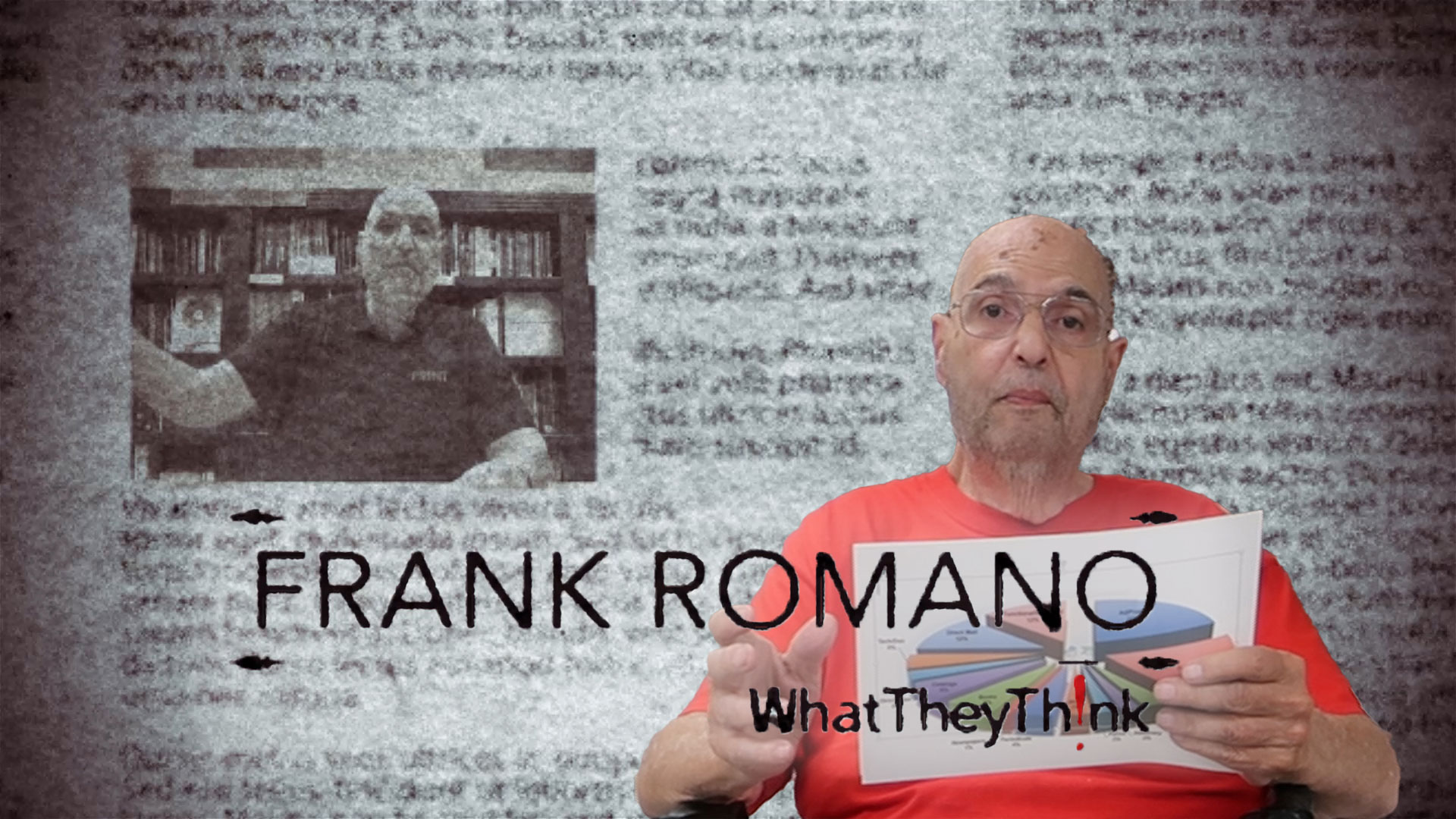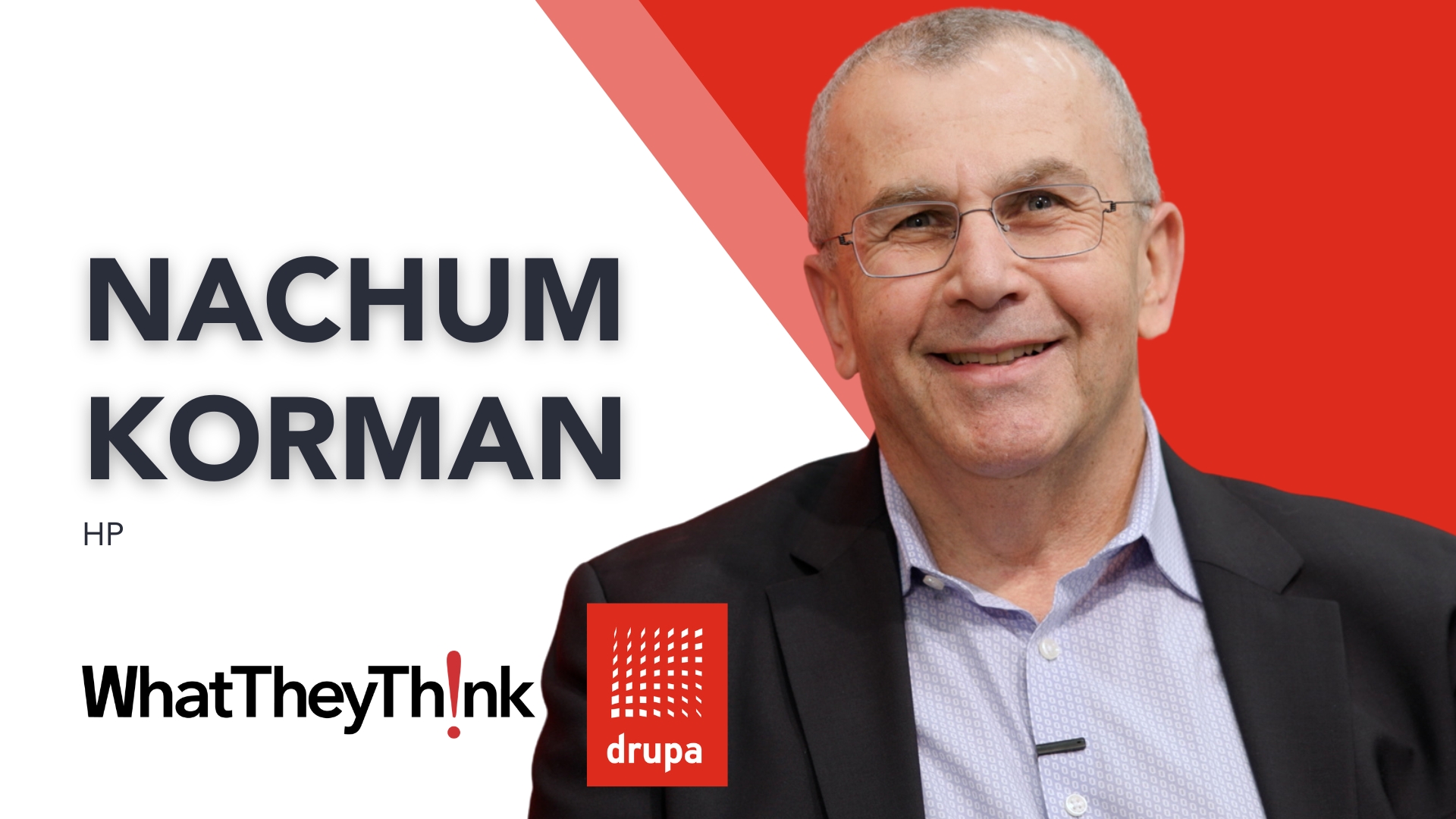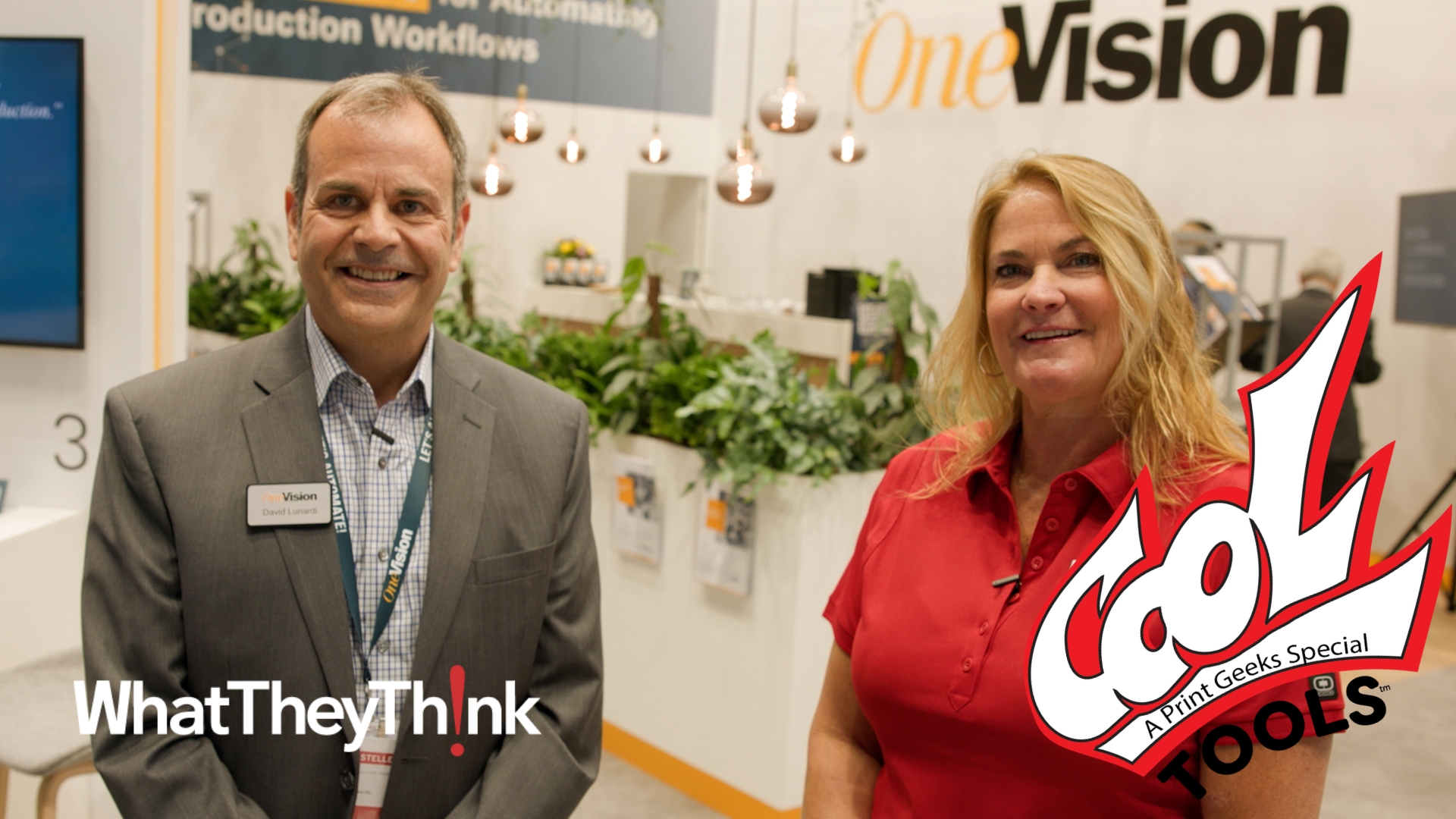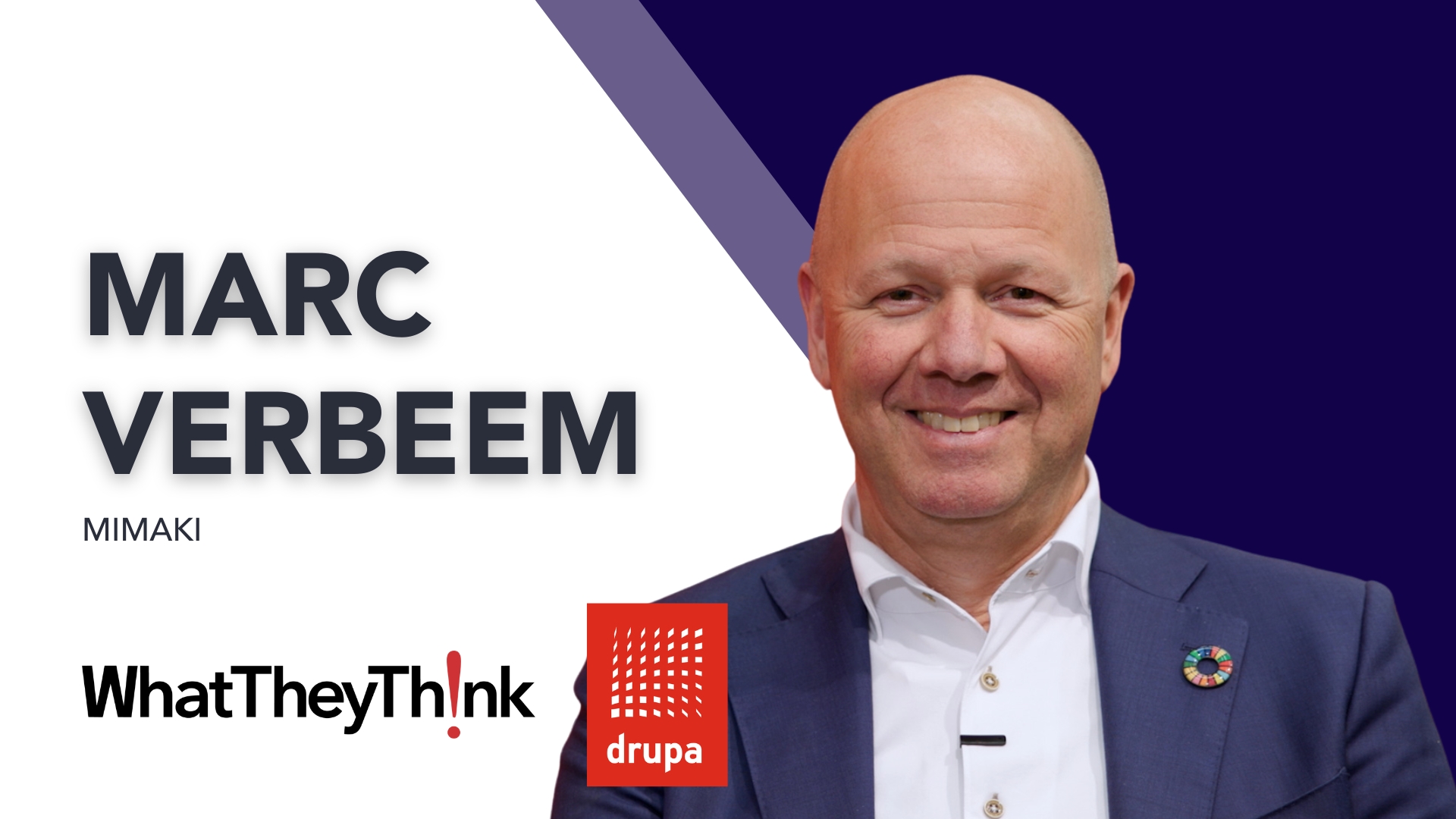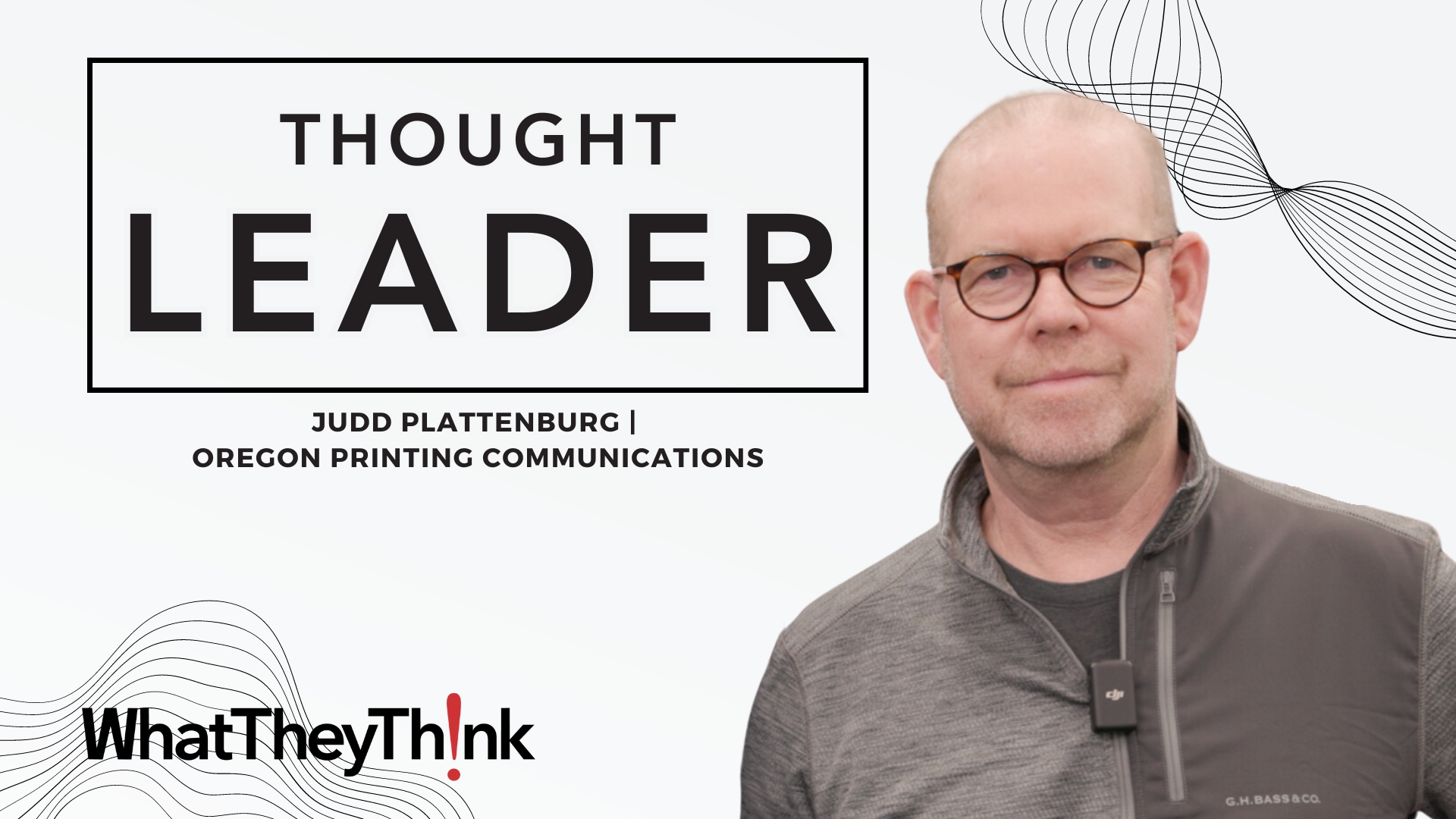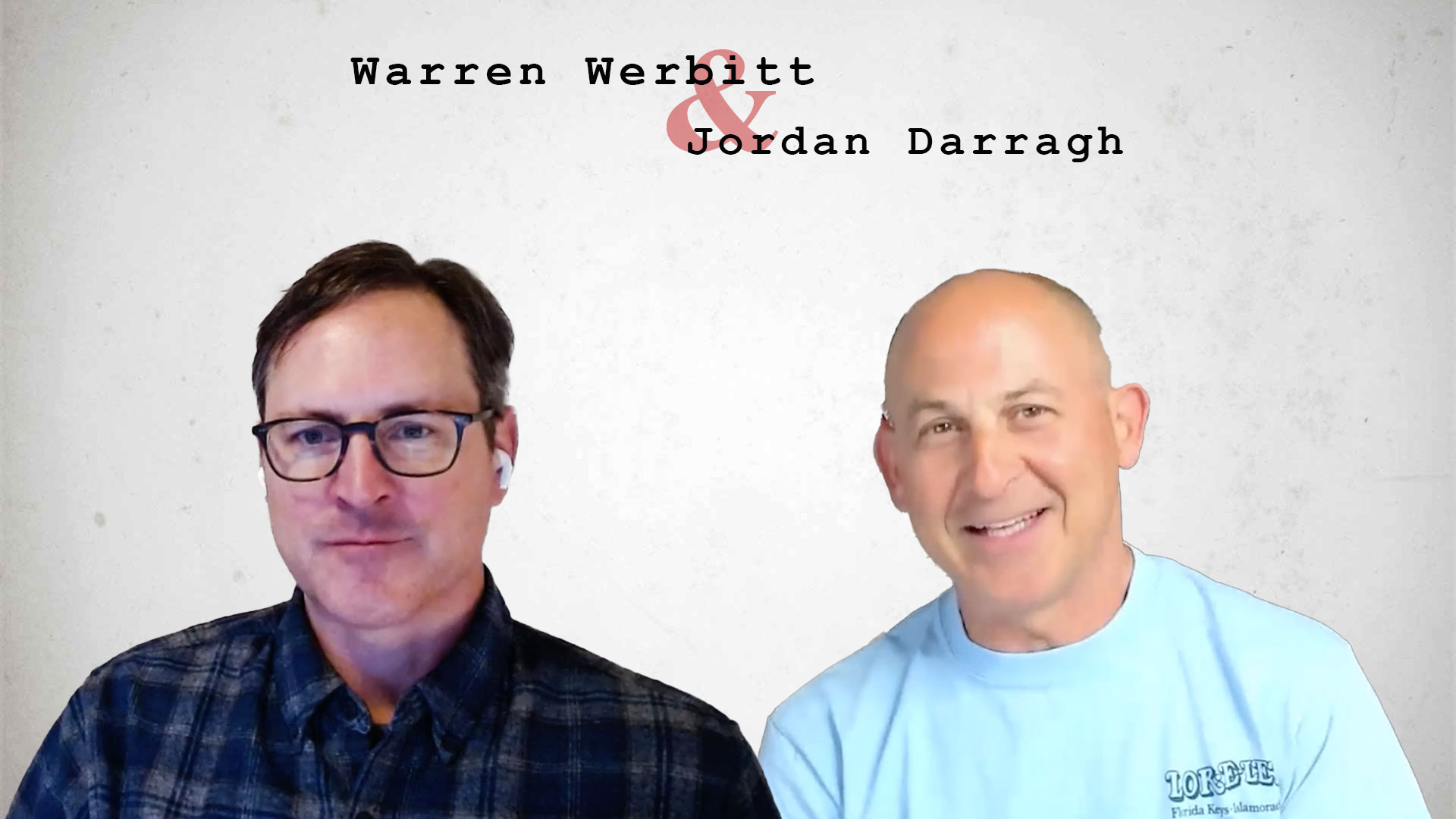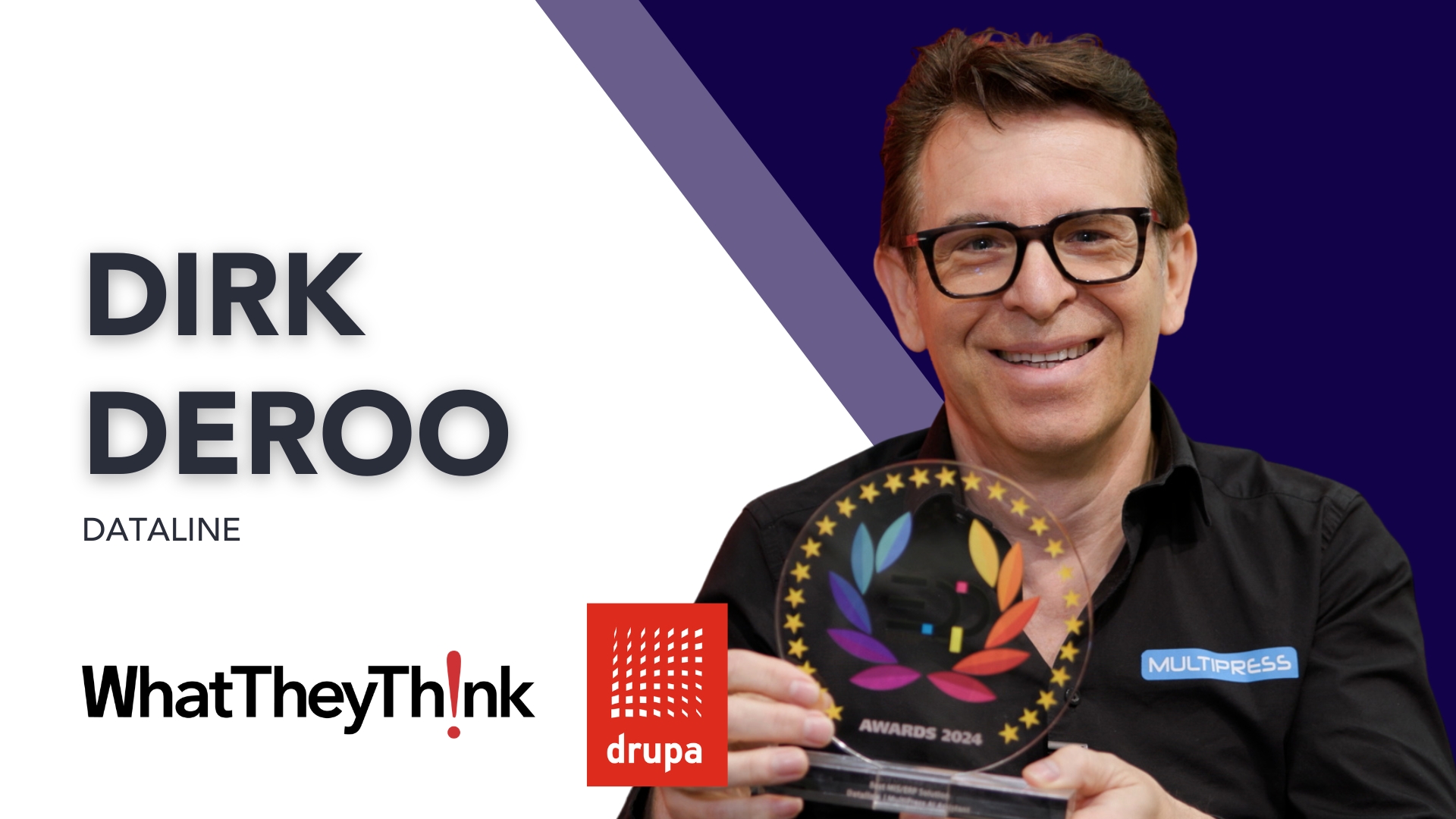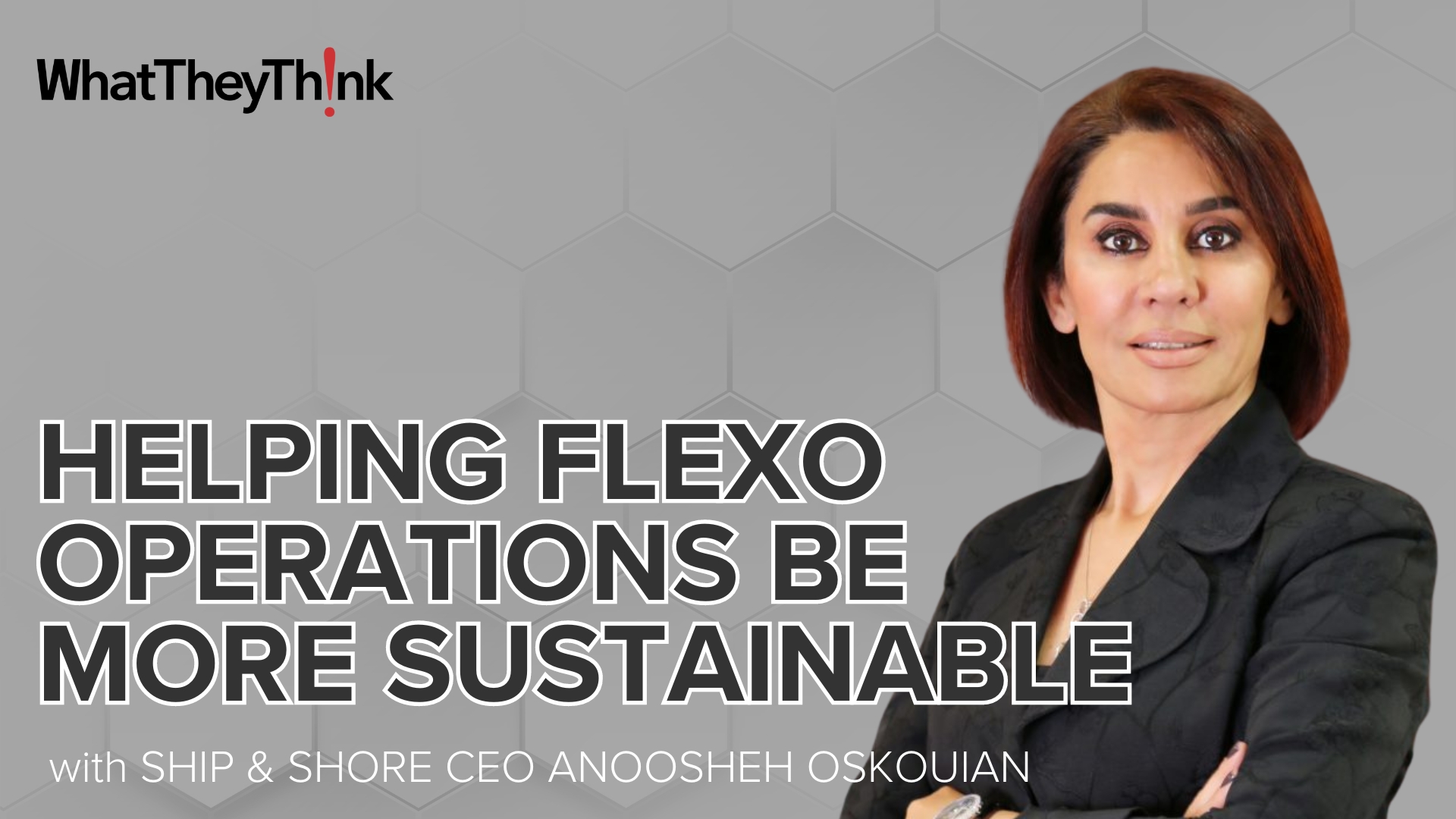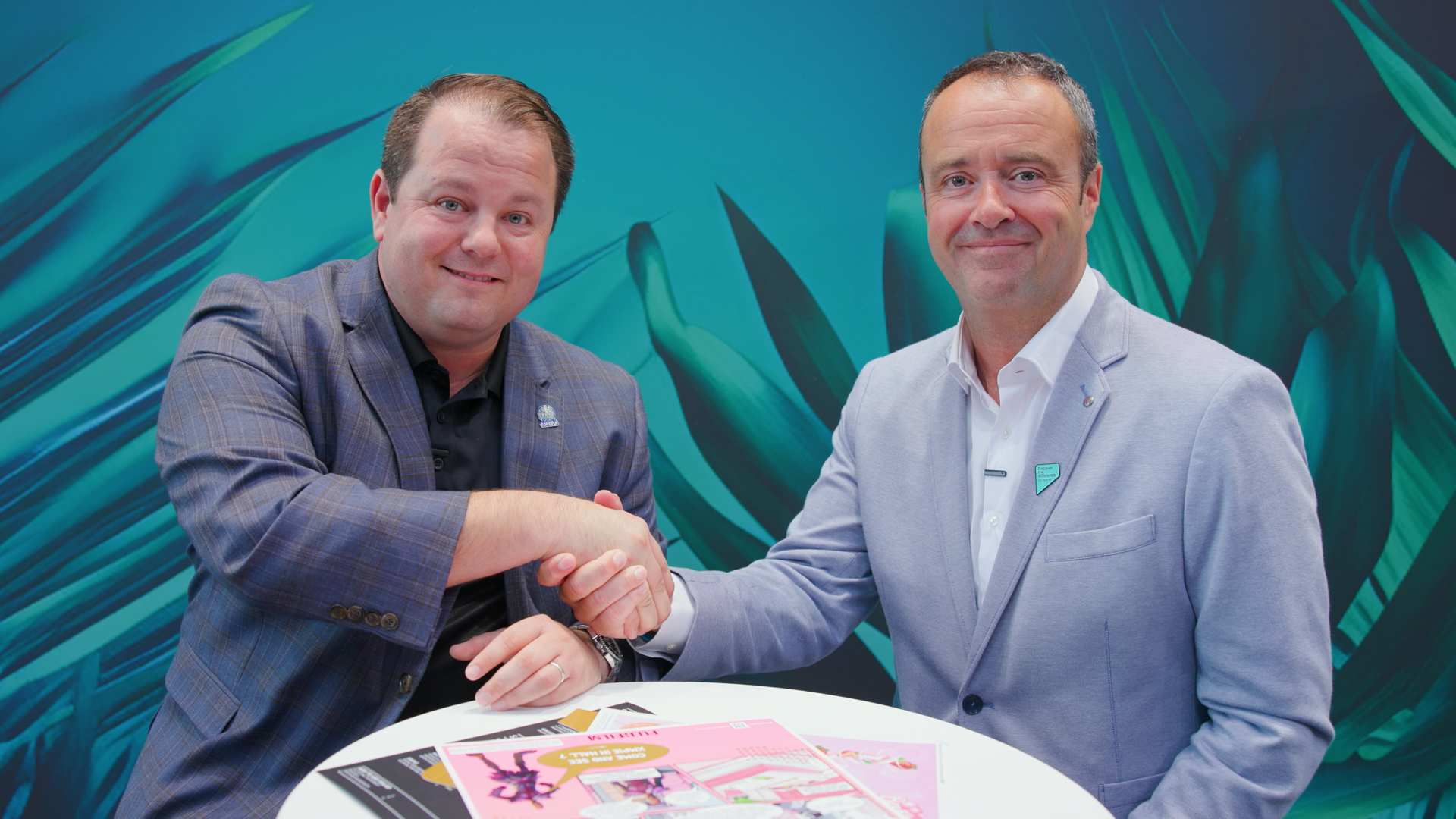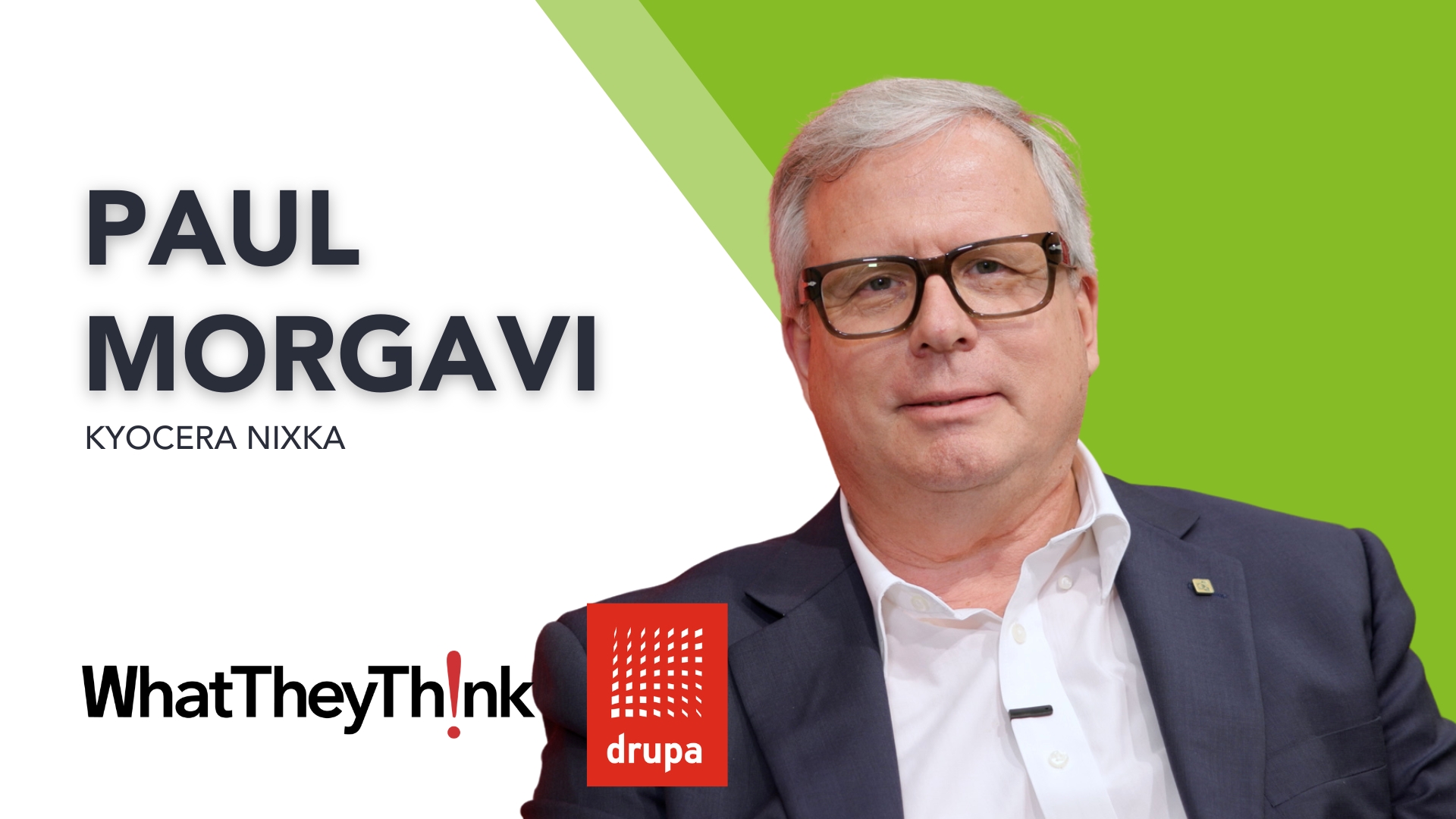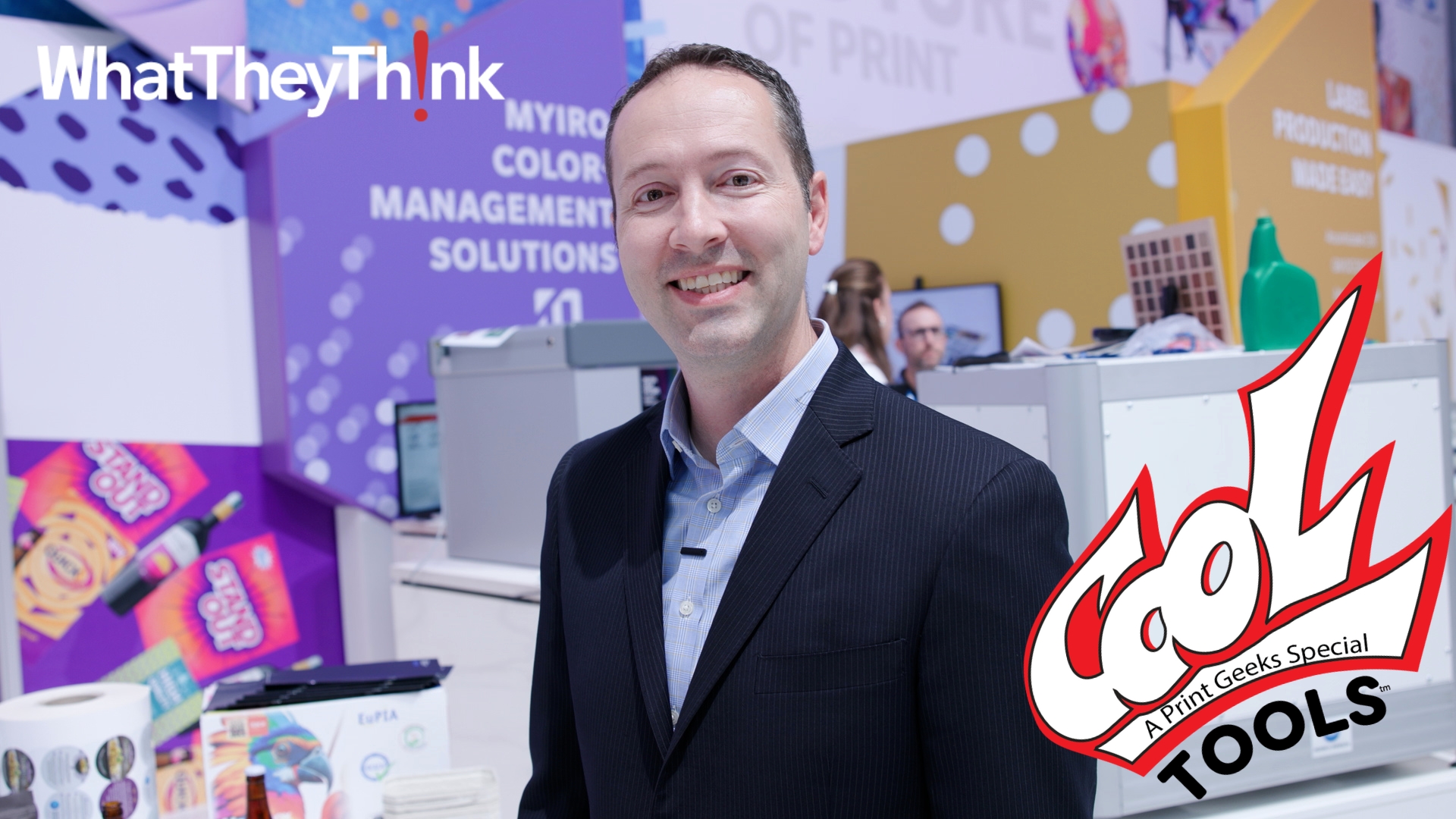Mohawk Papers: Playing the Environmental Card By Cary Sherburne, Senior WTT Editor May 1, 2007 -- Mohawk Fine Papers continues to play a leadership role in papers designed for both digital printing and environmental sustainability. At the recent On Demand show, the company was touting its new Beckett Concept and Expression papers and distributing a booklet called Sense and Sustainability, meant as an educational piece on environmental sustainability, specifically as it relates to paper manufacturing and use. Mohawk defines sustainability as "assuring the long-term survival of our planet by conserving and caring for its resources rather than depleting or permanently damaging them," adding, "Our growing awareness of the effects of climate change and deforestation makes sustainability and environmental stewardship everyone’s concern today." Mohawk defines sustainability as "assuring the long-term survival of our planet by conserving and caring for its resources rather than depleting or permanently damaging them," WhatTheyThink has reported on Mohawk’s environmental stance before, including the family-owned mill’s use of wind power generation and post-consumer recycled content. Mohawk has been a leader in both of these areas, and in fact, was one of the first paper mills to make coated paper from post-consumer recycled fiber. Following the acquisition of the IP Fine Papers Group, Mohawk has consolidated its brands (Mohawk, Strathmore and Beckett) and has continued its environmental leadership in the manufacture of those brands. Like most of us in the printing industry, I love fine papers, and Beckett Concept and Expression caught my attention, both because of the quality of the papers and their environmental characteristics. It is also guaranteed to run well on digital print engines, which in and of itself is environmentally friendly, since we all know that print on demand can keep a lot of unnecessary printed materials out of our landfills by reducing waste due to inventory obsolescence. While one would hope that support for environmental sustainability is gaining strength, the progress seems to be a little slow in the U.S. printing industry. When I interview printers for articles and case studies, I often ask them about their environmental stance. The most frequent response I get is, "Oh, of course I support the environment, and so do my customers—as long as it doesn’t cost extra." While one would hope that support for environmental sustainability is gaining strength, the progress seems to be a little slow in the U.S. printing industry. Often we think of compliance with environmental regulations and/or building an environmentally sustainable operation as an added cost. Mohawk puts forth an alternative point of view that makes a case for a positive impact on the bottom line for companies who pursue a policy of environmental sustainability: "For companies, sustainability and profitability go hand in hand. A commitment to environmental sustainability makes for good corporate citizenship that improves a company’s relationship with customers, investors, regulators, neighbors and suppliers. The alternative to environmental responsibility is no longer tolerable. Sustainability is not only good for the earth and its people; it’s increasingly connected to building bottom lines and improving shareholder value." Back to Beckett. One way to improve your environmental footprint is to use environmentally friendly substrates whenever possible. That’s why I was interested in what Mohawk is doing with its Beckett line. Concept and Expression are both: * Made carbon neutral * Made with Green-e certified wind-generated electricity * FSC certified * Post-consumer waste fiber shades (100% in Concept, 30% in Expression) are Green Seal certified So what does this mean? Here is how Mohawk sets the stage: Carbon Neutral: "Carbon neutral" describes products, operations and activities that have had their carbon dioxide and greenhouse gas emissions 1) calculated 2) reduced where possible and 3) "offset" through credits that fund renewable, emission-free energy products. A carbon offset credit represents one ton of greenhouse gas emission reductions or avoided emissions. The carbon offset credit market allows businesses to recognize and financially support the shift from fossil fuel to renewable energy. By purchasing these credits, organizations can apply them to their own emissions and reduce their net carbon impact. Wind-Generated Energy: Wind power generation is the fastest growing energy source in the world. And it is also the least expensive, most developed and fastest to build alternative to fossil fuel. Because wind turbines (aka windmills) use less than 5% of the land where they are sited, they minimize habitat destruction, help preserve open space and allow for multiple uses of the land. FSC Certified: The Forest Stewardship Council (FSC) is an organization created in 1993 following the Rio Earth Summit to change the dialogue about and the practice of responsible forestry worldwide. FSC-US was established in 1995 as the American national chapter to coordinate the development of forest management standards throughout the different biogeographic regions of the United States, to provide public information about FSC and certification and to work with certification organizations to promote FSC certification in America. To earn FSC certification, a product made of pulp or paper must pass through a complete "chain of custody" from an FSC-certified forest to an FSC-certified paper manufacturer, merchant and printer. To earn FSC certification, a product made of pulp or paper must pass through a complete "chain of custody" from an FSC-certified forest to an FSC-certified paper manufacturer, merchant and printer. The intent of the FSC system is to shift the market to eliminate habitat destruction, water pollution, displacement of indigenous peoples and violence against people and wildlife that often accompanies logging. Green-e: Green-e is the nation’s leading independent certification and verification program for renewable energy products. The Green-e logo is a nationally recognized symbol to help consumers identify superior, certified renewable energy products. Green Seal: Used on products certified by Green Seal—an organization devoted to environmental standard-setting, product certification, advertising claims substantiation and public education—as causing less toxic pollution and waste, conserving resources and habitats, and minimizing global warming and ozone depletion. Mohawk has made significant investments in environmental sustainability and has leveraged those investments to set itself apart. Let’s all take a page out of Mohawk’s swatchbook and examine our own environmental footprints to find ways to shrink them—profitably. Here is Mohawk’s recommended checklist, ranked in order of the greatest environmental savings. Use this as one tool to both assess your own business and educate your buyers: 1. Choose paper made with 100% post-consumer waste recycled fiber 1. Choose papers with FSC-certified fiber to preserve forest lands 2. Choose papers made carbon neutral with Verifiable Emission Reduction credits that fund additive, clean energy projects 3. Choose papers made with emission-free renewable energy, such as wind-generated electricity 4. Choose papers made with process chlorine free (PCF) or elemental chlorine free (ECF) pulps 5. Choose uncoated papers; coated papers yield very little recyclable fiber 6. Choose paper mills that have received third-party certifications from Green-e, Green Seal and the Forest Stewardship Council Download a copy of Sense and Sustainability. Cary can be reached via email at [email protected], online at www.sherburneassociates.com and by telephone at 603-430-5463. Prior to launching her consulting practice, Ms. Cary Sherburne was the Vice President of Marketing Communications and Outsourcing Solutions at IKON Office Solutions. In that capacity, she developed and implemented a branding campaign to build brand awareness for IKON in the marketplace as well as enhance employee pride in the organization, and was responsible for all internal and external communications, including trade shows and events, corporate newsletters, and industry and press relations. In the outsourcing role, she set strategic objectives and priorities for IKON's product and services portfolio in its Outsourcing businesses, including development of programs and sales support materials for that environment. Sherburne was a Director at CAP Ventures, an internationally known firm specializing in market research and strategic consulting for the digital document and print on demand industry, before joining IKON, where she launched and managed the company's Document Outsourcing Consulting Service. Her tenure in the printing and publishing industry has also included sales and marketing positions at Xerox Corporation, Indigo America and Bitstream. She is a frequent speaker at industry events and a recognized author. Cary can be reached via email at [email protected], online at www.sherburneassociates.com and by telephone at 603-430-5463.
Commentary & Analysis
Mohawk Papers: Playing the Environmental Card
Mohawk Papers:
About WhatTheyThink
WhatTheyThink is the global printing industry's go-to information source with both print and digital offerings, including WhatTheyThink.com, WhatTheyThink Email Newsletters, and the WhatTheyThink magazine. Our mission is to inform, educate, and inspire the industry. We provide cogent news and analysis about trends, technologies, operations, and events in all the markets that comprise today's printing and sign industries including commercial, in-plant, mailing, finishing, sign, display, textile, industrial, finishing, labels, packaging, marketing technology, software and workflow.
- June 2024 Inkjet Installation Roundup
- Inkjet for corrugated and more: HP launches the T700i
- Printheads and inkjet integration programs from Xaar
- 2024 Inkjet Integrator Profiles: C-marx
- Finding the coolest of the cool at drupa
- Inkjet printheads and the evolution of print quality
- Koenig & Bauer developing inkjet for metal
- Carbon Black and Inkjet – Part 3: Options

WhatTheyThink is the official show daily media partner of drupa 2024. drupa Event Coverage | drupa daily programs
© 2024 WhatTheyThink. All Rights Reserved.

